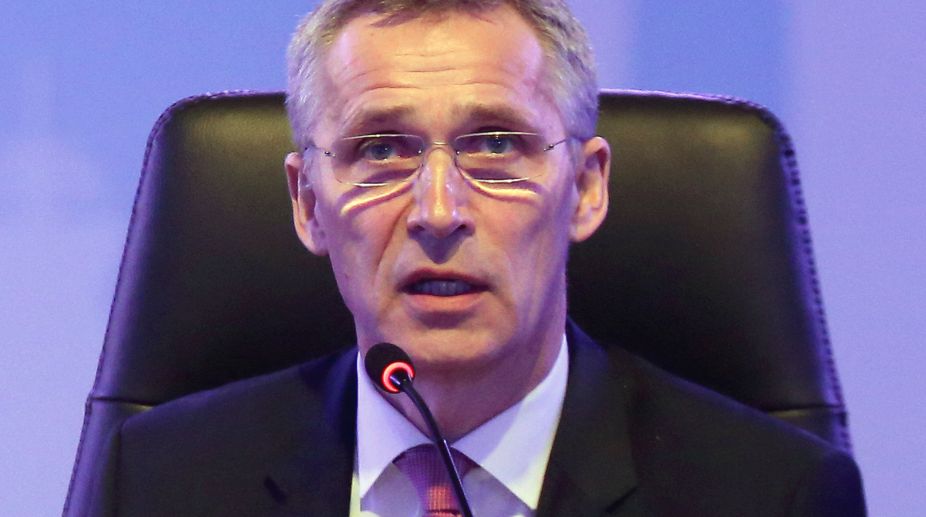US President Donald Trump and NATO both agree on the need for dialogue with Russia from a position of strength, alliance chief Jens Stoltenberg said on Tuesday.
Trump has badly rattled Europe with his softer line on Moscow and by calling into question Washington's near-70 year commitment to an alliance he dubbed "obsolete" and an unfair burden on the US taxpayer.
Advertisement
But Stoltenberg said that in recent phone conversations with Trump and US Defence Secretary James Mattis, "they all conveyed the same message that the United States remains committed to NATO and the transatlantic bond."
"The message of the new administration is that they also want dialogue with Russia but from a position of strength," Stoltenberg told reporters after talks with Bulgarian President Rumen Radev at NATO headquarters in Brussels.
NATO leaders in July last year signed off on the alliance's biggest military build-up since the end of the Cold War in response to Russia's intervention in Ukraine and its annexation of Crimea.
At the same time, they endorsed dialogue with "a more assertive" Russia so as to ensure transparency and to avoid any dangerous misunderstandings at a time of increased tensions.
Radev, seen as more sympathetic to Moscow than his predecessor, highlighted the fact that he had chosen NATO HQ for his first visit abroad since taking office.
"NATO remains an extremely important organisation to safeguard the allies … we support NATO efforts to defend and deter and we believe that Bulgaria is part of these efforts," he said.
Bulgaria joined NATO in 2004 along with several other former communist states once ruled by Moscow.
Radev, a former air force commander, who was partly US-trained and according to Stoltenberg served at NATO, said earlier this month he believed Trump offered hope of an improvement in relations with Russia.











